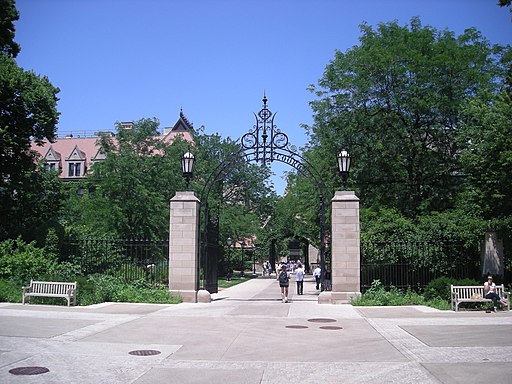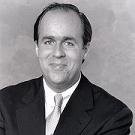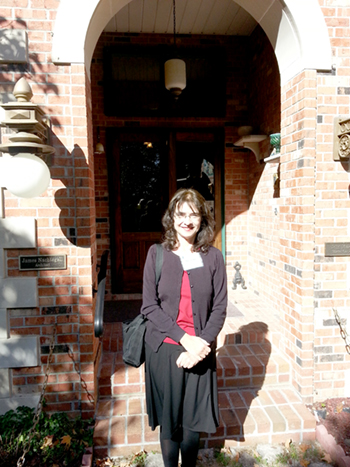 When University Leaders Won't Lead by Matthew G. Andersson, Posted May 7, 2024 by Mary Grabar (photo: wikimedia commons)
When University Leaders Won't Lead by Matthew G. Andersson, Posted May 7, 2024 by Mary Grabar (photo: wikimedia commons)
There are a number of college campus protests going on right now, and they will likely continue in some form, for some time. You may be sympathetic, or you may object on a number of very legitimate grounds. But I’d like to raise another aspect of student protesting, in general, as it relates to how the modern university is organized, and how it has responded to campus protests going back decades. The causes are almost always the same: strong objections to war, to civilian casualties, to war profiteering, and to political privilege. Universities are a natural place to protest and visibly object, as they are in the intellectual center of the foreign policy and intelligence establishment, and they are central to federal and commercial research that is also often directly tied to various forms of warfare science. They are also places where vast sums of money are transferred or even disguised as “research” and they operate as effective arms of the federal government, and on behalf of major corporate interests that together create the well-known industrial complex. They are famous for forming funded “centers” that even assert an expertise in global conflict, and as educational “stepping stones” to the State Department.
Berkeley, UCLA, Columbia, NYU, Yale, Texas, MIT, the University of Chicago, and others, are among the protest locations. As usual throughout the history of college protests, there is a dividing line among ideological interests, and university administrators are concerned above all else, with keeping order. They rarely, if ever, get involved in any way, in the actual critical issues that are being fought over. There is no “teaching moment;” no solidarity with just causes, or decisive intervention into abuse, or any stand over ethical complexities: They putatively represent the university as a corporation, and the corporation exists, and is perpetuated by, obedience to rules, deference to authority, and the presumed power to issue threats of punishment.
But what authority, exactly?
The president of the University of Chicago, Paul Alivisatos, represents a very traditional corporate response to the protests on campus: he notes as student violations, relatively minor, if not meaningless symbolic acts involving flags and flagpoles, the use of sidewalks, and asserted disruptions to regular college functions like classes or exams. He speaks like a traffic policeman, instead of a college leader engaged in how learning actually takes place: by facing and engaging in, real problems, wherever they may come from, and demonstrating what leadership looks like.
Yet UChicago represents an especially pernicious problem in higher education: the active influence and interference of state political actors within the university itself. The UChicago president’s office employs the former White House chief of staff to Michelle Obama as a “special advisor” to the president. What might her agenda be, and why does the University even feel it advisable to employ her? Meanwhile, UChicago’s Board of Trustees is headed by the founder of the largest U.S. military and defense hedge fund that makes billions from war profiteering. So the university president has let himself be put in the worst of all situations, and effectively surrendered his leadership role to political and commercial interests.
But there’s more.
Towering above the southeastern end of campus is the new dystopian “Obama Center,” which casts a dark shadow over the university’s intellectual independence. The campus protests there have all the hallmarks of the same sources of finance and organizational assistance that enabled BLM, and the 2020 election riots (and the upcoming DNC convention in Chicago will be subject to a number of irregular influences). The City of Chicago is overrun with radical Left ideologues, from the current mayor to the most recent mayor, and are consolidated with the Obama Foundation and the former president, as their leader. Along with Susan Rice and Valerie Jarrett acting on his behalf in the White House, the sources of ethno-religious disruption, and rioter sympathies, are not difficult to discern. The modern university campus has always been the Obama “base camp” because young adults are the target audience, and are easily co-opted, and influenced. The university is also the political Left’s true source of cognitive shaping, and often its only experience: they are not as a group from any actual business sector, except what they consider professional politics.
One other fascinating irony worth mentioning concerning university leadership:
The issue of “disruption” and campus disorder as suddenly an unacceptable student encroachment on the University’s prerogatives and operating routines is nothing if not a hypocrisy: Apparently forgotten is how this same university administration, along with Harvard, Stanford, and every college in America, turned itself, without warning, into a biosecurity compound between 2020 and 2023, over Covid. This included forcibly ejecting students from their residential housing; isolating students in guarded facilities over presumed virus risk; fining and harassing students for the slightest violation of “protocols” like social distancing and the use of face masks, and even actively spying on students through a network of observers and reporters, including the illegal use of digital tracking that violated personal privacy. Most of all, students were systematically threatened (some say extorted) in order to force the acceptance of asserted, experimental vaccines, and their physical, bodily integrity was put under an illegal policy of the university. Students found their entire world suddenly turned upside down, and university administrators enjoying their new power to disrupt life and control behavior. Classes were moved to remote formats (for the same tuition price), and “teaching” suddenly a disorganized ad hoc process. The entire campus was converted into something more resembling a guarded prison, than an open community of learning. In the meantime, billions of dollars flowed into the university system with federal bailouts, research grants and funding, while administrators like UChicago Provost Kathleen Baicker made millions in biopharmaceutical stock, and university administrators enjoyed a financial heyday of self-dealing (for example, the UChicago president spent millions remodeling his home, and he was far from the only one on the “Covid gravy train”).
Universities as places of privilege:
In some ways, the student protestors, as largely misguided they may be, are indirectly exposing the very nature of the modern university itself: they have always been places of division and hierarchy; of privilege and reward for administrative insiders. The students on many of our nation’s campuses are being called “squatters,” or an “encampment.” Interestingly, every university today has an “encampment” of administrative bureaucrats who actually outnumber the college students: they are camped out in the halls of administrative buildings all over campus, safely ensconced and “squatting” in their offices and cubicles; an army of apparatchiks, thousands of them in every major university, who silently carry out the orders of the modern university corporation.
The problem with student protestors assembled in large visible crowds, out in the open, is that they represent in their imperfect and often counterproductive way, what terrifies university administration most of all: defiance, the exposure of privilege, and the loss of power relationships. Their personal career interests will be prioritized over their core leadership duty, and their ability to take an ethical, moral or even rational economic stand, compromised by political special interests that they defer to.
 Matthew G. Andersson is a former CEO and author of the upcoming book "Legally Blind" concerning law education. He has been featured in the Wall Street Journal, the New York Times, and the 2001 Pulitzer Report by the Chicago Tribune. He received the Silver Anvil award from the Public Relations Society of America and has testified to the U.S. Senate. He was educated at the Watkinson School, and attended Yale College, the University of Texas at Austin, and the University of Chicago.
Matthew G. Andersson is a former CEO and author of the upcoming book "Legally Blind" concerning law education. He has been featured in the Wall Street Journal, the New York Times, and the 2001 Pulitzer Report by the Chicago Tribune. He received the Silver Anvil award from the Public Relations Society of America and has testified to the U.S. Senate. He was educated at the Watkinson School, and attended Yale College, the University of Texas at Austin, and the University of Chicago.





